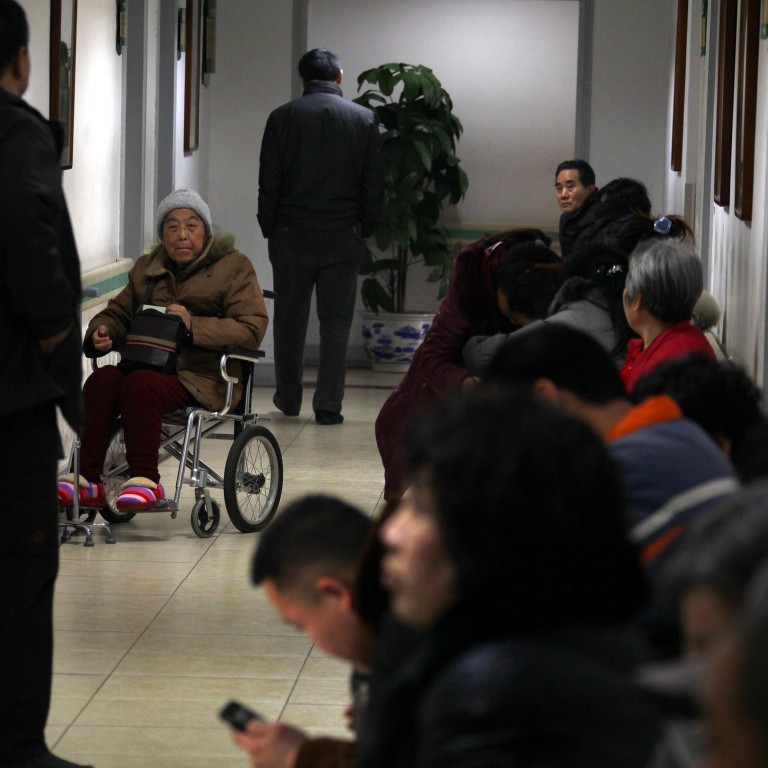
Scandal hits China’s star health care crowdfunding site Waterdrop
- Undercover report finds staff signing up patients to fill quotas, exaggerating their stories and failing to check financial details
- Founder Shen Peng apologises, suspends service team and launches investigation
A health care crowdfunding and online insurance sales platform in China apologised on Thursday after a series of scandals were exposed in an undercover media report.
The founder of Waterdrop – known as Shuidi in Chinese – Shen Peng, 32, also announced the suspension of the company’s offline service team and an in-depth investigation into the claims made by online media platform Pear Video on Saturday.
“After initial investigations we found different levels of offences against our service regulations among our offline staff,” Shen said. Later, in a separate Weibo post, Shen wrote: “If I cannot manage Shuidi well in future, I will be happy to hand it over to an NGO.”

The Pear Video report said Waterdrop service staff, who are deployed in more than 40 cities across China, had been going around hospitals asking patients to initiate crowdfunding projects and exaggerating their stories to attract sympathy and donations. The report also revealed that staff did not verify the financial situations of the targeted families.
Several Waterdrop staff told the undercover reporter they needed patients to start crowdfunding projects because they had quotas to fill and rewards to be had. One staff member said he would lose his job if he launched fewer than 35 projects each month. A staff member is paid up to 150 yuan ($11.35) for every project he helps to set up.
Information provided by patients – including their family background, what they were being treated for and how much money they had – was made to fit a story template by the Waterdrop staff who can be seen in the video arbitrarily assigning donation goals.
The Pear Video report said no steps were taken by the Waterdrop employees to confirm the patients’ financial situation. In one case, a Waterdrop representative helped a patient set his donation goal at 150,000 yuan, even though half of his expenses were covered by medical insurance.
The undercover reporter also found little supervision of how donations were spent, with Waterdrop staff telling patients the company did not require any proof. “If you don't want to upload any [follow-up] receipts, that's fine, never mind,” a Waterdrop employee was seen telling a patient.
Leniency from China court in Dying to Survive cancer drug case
Verification and supervision are the most frequently raised issues about crowdfunding platforms in China.
According to the public user manual for the Tencent Lejuan crowdfunding platform, users must provide proof, such as financial statements, to initiate a project and, once donations have closed, they are required to provide online updates at least twice a month on the progress of their project.
Another crowdfunding platform, the Beijing-based Qschou.com, told media they had teams going through patients’ materials such as photo ID and medical reports and often needed to double check information with their families and hospitals.
Waterdrop was founded in 2016 by Shen, a former executive with Meituan Dianping, one of the world’s largest online and on-demand delivery platforms.

.jpg?itok=H5_PTCSf&v=1700020945)